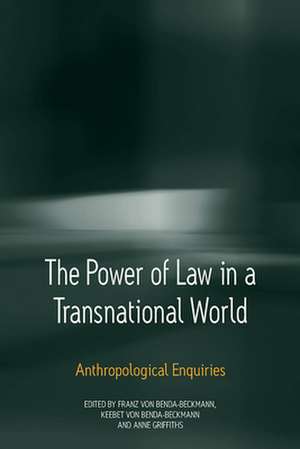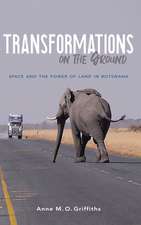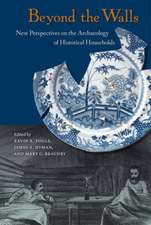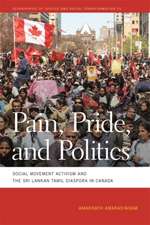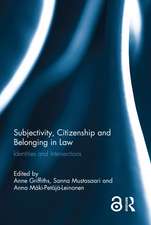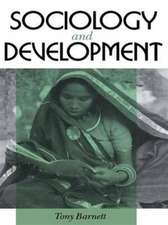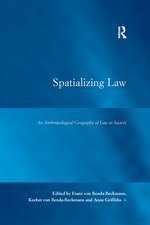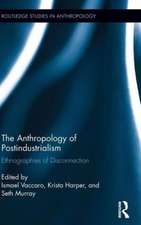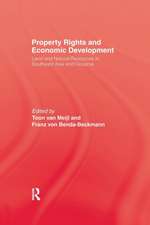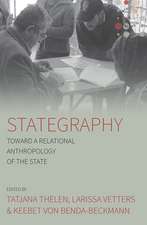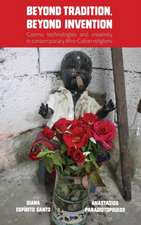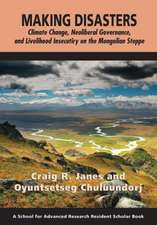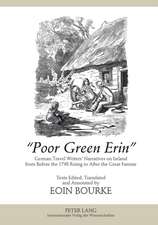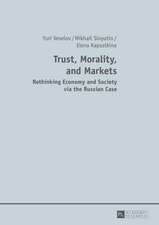The Power of Law in a Transnational World
Editat de Anne Griffiths, Franz Von Benda-Beckmann, Keebet Von Benda-Beckmannen Limba Engleză Paperback – 31 mar 2012
This fascinating collection of articles sheds new light on the way law exercises power in a transnational world, from the crises of terrorism to the subtle introduction of new law within development projects. This set of articles provides new evidence of the important insights offered by legal pluralism and anthropological methodologies for understanding the nature of transnational, national, and local systems of law. Sally Engle Merry, New York University
How is law mobilized and who has the power and authority to construct its meaning? This important volume examines this question as well as how law is constituted and reconfigured through social processes that frame both its continuity and transformation over time. The volume highlights how power is deployed under conditions of legal pluralism, exploring its effects on livelihoods and on social institutions, including the state. Such an approach not only demonstrates how the state, through its various development programs and organizational structures, attempts to control territory and people, but also relates the mechanisms of state control to other legal modes of control and regulation at both local and supranational levels.
Keebet von Benda-Beckmann is head of the Project Group Legal Pluralism at the Max Planck Institute for Social Anthropology in Halle, Germany. She also is an honorary professor in Leipzig and Halle. Her research in Indonesia and the Netherlands focuses on legal pluralism, social security, governance and on the role of religion in disputing processes.
Franz von Benda-Beckmann is head of the Project Group Legal Pluralism at the Max Planck Institute for Social Anthropology in Halle, Germany. He also is an honorary professor in Leipzig and Halle. His research in Malawi and Indonesia focuses on property and inheritance, social security, governance and legal anthropological theory.
Anne Griffiths has a personal chair in Anthropology of Law at the University of Edinburgh in the School of Law. Her major research interests include anthropology of law, comparative and family law, African law, gender, culture and rights. She has been awarded research grants from the ESRC (Economic and Social Research Council), the Wenner-Gren Foundation for Anthropological Research (USA), the Annenberg Foundation (USA), the British Academy, the Leverhulme Trust, the Commonwealth Foundation, the Carnegie Trust and the American Bar Foundation.
| Toate formatele și edițiile | Preț | Express |
|---|---|---|
| Paperback (1) | 260.96 lei 6-8 săpt. | |
| BERGHAHN BOOKS INC – 31 mar 2012 | 260.96 lei 6-8 săpt. | |
| Hardback (1) | 750.49 lei 6-8 săpt. | |
| BERGHAHN BOOKS INC – 30 apr 2009 | 750.49 lei 6-8 săpt. |
Preț: 260.96 lei
Nou
Puncte Express: 391
Preț estimativ în valută:
49.94€ • 54.23$ • 41.95£
49.94€ • 54.23$ • 41.95£
Carte tipărită la comandă
Livrare economică 22 aprilie-06 mai
Preluare comenzi: 021 569.72.76
Specificații
ISBN-13: 9780857456151
ISBN-10: 0857456156
Pagini: 280
Dimensiuni: 152 x 229 x 15 mm
Greutate: 0.38 kg
Editura: BERGHAHN BOOKS INC
ISBN-10: 0857456156
Pagini: 280
Dimensiuni: 152 x 229 x 15 mm
Greutate: 0.38 kg
Editura: BERGHAHN BOOKS INC
Notă biografică
Keebet von Benda-Beckmann is head of the Project Group Legal Pluralism at the Max Planck Institute for Social Anthropology in Halle, Germany. She also is an honorary professor in Leipzig and Halle. Her research in Indonesia and the Netherlands focuses on legal pluralism, social security, governance and on the role of religion in disputing processes. Franz von Benda-Beckmann is head of the Project Group Legal Pluralism at the Max Planck Institute for Social Anthropology in Halle, Germany. He also is an honorary professor in Leipzig and Halle. His research in Malawi and Indonesia focuses on property and inheritance, social security, governance and legal anthropological theory. Anne Griffiths has a personal chair in Anthropology of Law at the University of Edinburgh in the School of Law. Her major research interests include anthropology of law, comparative and family law, African law, gender, culture and rights. She has been awarded research grants from the ESRC (Economic and Social Research Council), the Wenner-Gren Foundation for Anthropological Research (USA), the Annenberg Foundation (USA), the British Academy, the Leverhulme Trust, the Commonwealth Foundation, the Carnegie Trust and the American Bar Foundation.
Cuprins
Acknowledgements Introduction: The Power of Law Franz von Benda-Beckmann, Keebet von Benda-Beckmann and Anne Griffiths POWER OF LAW AS DISCOURSE: CLAIMS TO LEGITIMACY AND HIGHER MORALITY Chapter 1. The Military Order of 13 November 2001: An Ethnographic Reading Carol J. Greenhouse Chapter 2. Law and the Frontiers of Illegalities Laura Nader Chapter 3. Selective Scrutiny: Supranational Engagement with Minority Protection and Rights in Europe Jane K. Cowan Chapter 4. The Globalization of Fatwas amidst the Terror Wars against Pluralism Upendra Baxi Chapter 5. Human Rights, Cultural Relativism and Legal Pluralism: Towards a Two-dimensional Debate Franz von Benda-Beckmann AT THE INTERSECTION OF LEGALITIES Chapter 6. Learning Communities and Legal Spaces: Community based Fisheries Management in a Globalizing World Melanie G. Wiber and John F. Kearney Chapter 7. Project Law - a Power Instrument of Development Agencies: A Case Study from Burundi Markus Weilenmann Chapter 8. Half-Told Truths and Partial Silence: Managing Communication in Scottish Children's Hearings Anne Griffiths and Randy F. Kandel RELIGION AS A RESOURCE IN LEGAL PLURALISM Chapter 9. Keeping the Stream of Justice Clear and Pure: The Buddhicization of Bhutanese Law Richard W. Whitecross Chapter 10. Balancing Islam, Adat and the State: Comparing Islamic and Civil Courts in Indonesia Keebet von Benda-Beckmann Chapter 11. Kings, Monks, Bureaucrats and the Police: Tibetan Responses to Law and Authority Fernanda Pirie Notes on Contributors Index
Recenzii
"...there is much common ground between the contributors, and the variety of contexts and situations are valuable for showing how the unifying themes - work out on different grounds." * Journal of Legal Pluralism "This fascinating collection of articles sheds new light on the way law exercises power in a transnational world, from the crises of terrorism to the subtle introduction of new law within development projects. This set of articles provides new evidence of the important insights offered by legal pluralism and anthropological methodologies for understanding the nature of transnational, national, and local systems of law." * Sally Engle Merry, New York University
